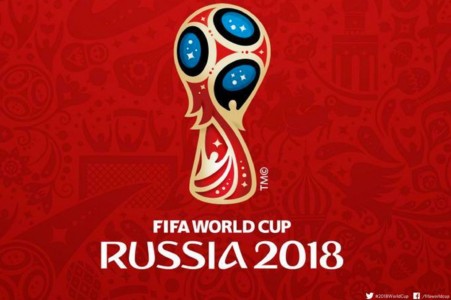
Just weeks after the Winter Olympics in Pyeongchang had politics as one of its central storylines, the other major global sporting event of 2018 also seems certain to be affected by external controversies.
This summer’s FIFA World Cup in Russia is just three months away, but has been rocked by calls for a boycott by a group of national teams led by England, in the wake of the much-publicized poisoning of a former Russian double agent on British soil.
British prime minister Theresa May stated on Monday that it was “highly likely” Russia was responsible for last week’s attack on 66-year-old Sergei Skripal and his daughter, Yulia, that left the pair comatose and battling for their lives.
In the week since the poisoning, the narrative surrounding the increasingly frosty relations between London and Moscow has shifted firmly towards the World Cup, which starts in the Russian capital on June 14. England is the only one of the four United Kingdom teams to have qualified and while initial murmurings suggested that the incident may affect which politicians would travel to the event, it has since been replaced by strong calls for a boycott. Multiple reports have also suggested Poland, Japan and Australia may also be willing to join an England-backed boycott.
“You can’t just carry on as normal with the World Cup,” Nick Clegg, the U.K.’s former deputy prime minister, said at a public event in Wales. “You can’t carry on sending our teams as normal to the World Cup if it is proven that this was a state-directed attack – of course not.”
Stephen Kinnock, a Labour party member of parliament, was also outraged. “What the Russians have done here is completely unacceptable,” Kinnock told the BBC. “Do we really think that in just a few months we will almost be vindicating the way that they behave by having a celebration of football … in their country?”
Even soccer figures have come under fire for their associations with Russia. Jose Mourinho, the Portuguese head coach of Manchester United, continues to refuse to discuss a deal worth a reported $1.4 million with Kremlin-backed television station RT. The arrangement, reportedly for five days’ work during the World Cup, would see Mourinho serve as RT’s lead on-screen analyst. Chris Bryant, another British politician, described Mourinho’s acceptance of the deal as “blood money”, given the current political climate.
English soccer chiefs have remained quiet on the issue and multiple reports have suggested that the English Football Association has taken no action indicative of a looming boycott. However, that point is largely irrelevant. Should the British government decide a boycott was the correct course of action, the soccer governing body would have little choice but to act in accordance with its wishes, even if the decree came just days before the event.
However, the outcry in Britain has largely been treated with disdain in Russia, which is finalizing preparations for hosting the tournament for the first time. Controversy has followed the 2018 event ever since it was awarded to Russia, at the expense of England and the United States, six years ago. Both the Russian bid and the successful Qatar 2022 bid that was named at the same time were rocked by allegations of bribery and impropriety.
Russia’s foreign ministry responded to the British threats in a statement delivered through the Interfax information service.
“We want to emphasize (sic) once again that such provocative statements that fuel anti-Russian hysteria, only complicate relations between our countries and are a blow to the sport,” the statement read.
“We have repeatedly warned that before the start of the World Cup in Russia, the Western media will launch a full-scale media campaign to discredit Russia and undermine its credibility as hosts.
“As we expected, the English are especially active in this, they cannot forgive Russia for winning the rights to host the 2018 World Cup instead of them, which was a fair decision after a fair election. Now the British media are actively calling for a boycott of the upcoming World Cup.”
Nikita Simonyan, vice president of the Russian Football Union, also said that even if England and other countries pulled out, it “would not be a weaker tournament.”
The poisoning of the Skripals has struck a nerve in the U.K., which is still sensitive about the 2006 assassination of British naturalized defector Alexander Litvinenko by Russian agents at a London hotel.
The ongoing saga still must run its course, but it has turned one of the World Cup’s early storylines into something that resembles a Cold War thriller.
Furthermore, if England does eventually take part, there are fears of fan violence between its supporters and those of the host country, following ugly clashes at the European Championships in 2016.
Tom Tugendhat, head of the British parliament’s foreign affairs committee, warned that traveling fans may face reprisals in Russia in the wake of the Skripal scandal. Meanwhile, an unidentified Russian fan was charged with attempted murder in the French city of Marseille on Tuesday over a 2016 attack that left an England national team fan with brain injuries.
Source: USA Today
